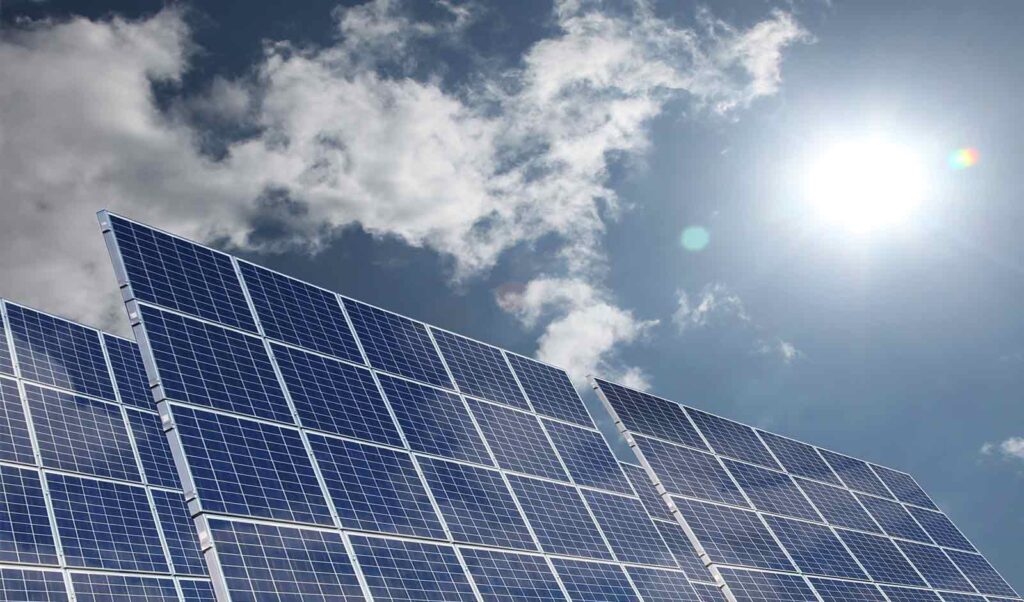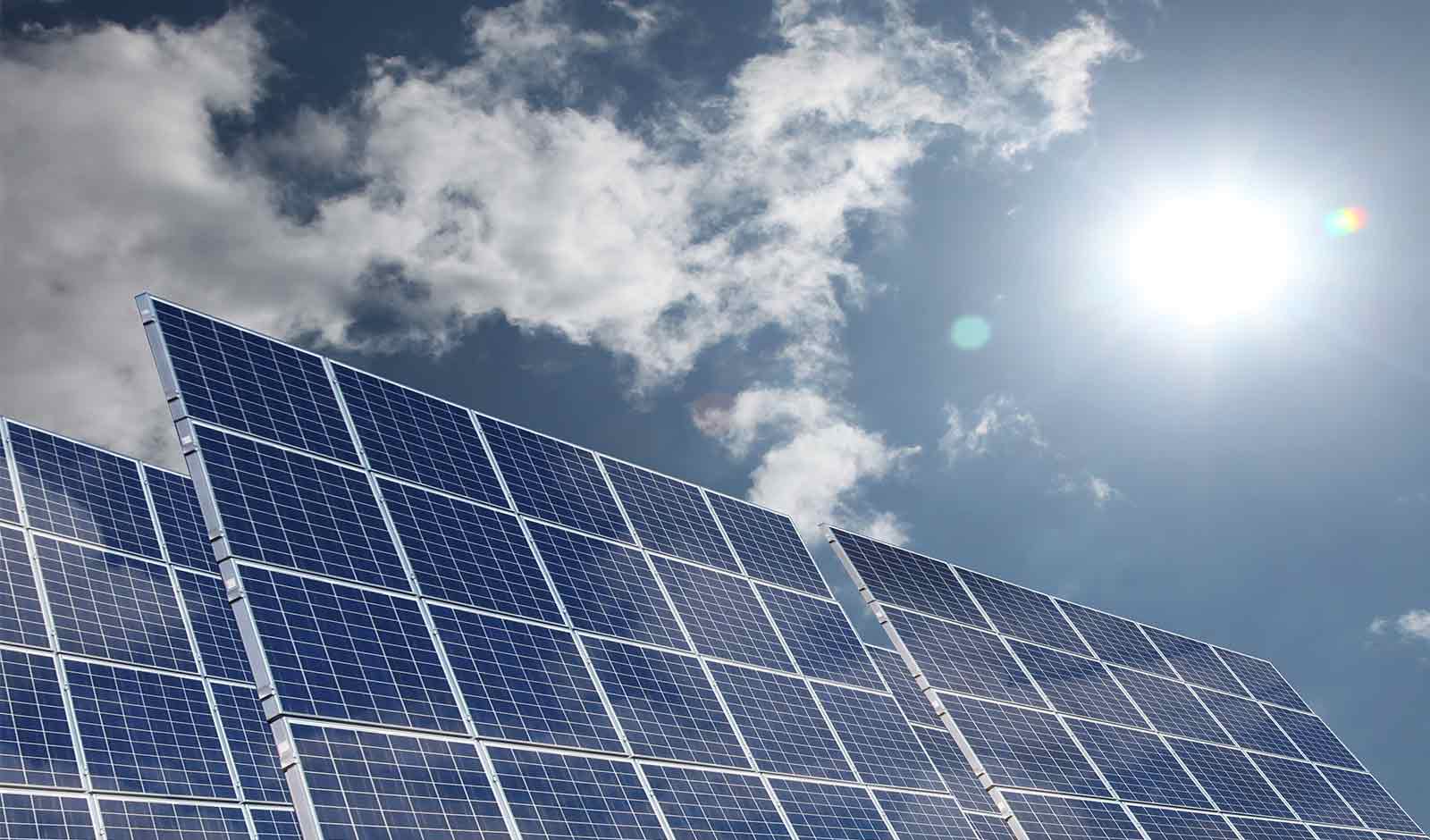
Solar energy is gaining tremendous popularity as a clean and renewable source of power. It offers numerous benefits, including reduced electricity bills, a lower carbon footprint, and energy independence. When considering solar power, one essential factor to understand is solar panel efficiency. In this article, we will delve into the concept of solar panel efficiency, its significance, and ways to maximize it for optimal energy production. – Looking for the best Solar Panels in Spain? Then look no further.
The Basics of Solar Panel Efficiency – Solar panel efficiency refers to the ability of a solar panel to convert sunlight into usable electricity. It is expressed as a percentage that represents the ratio of the electricity output to the sunlight input. Higher-efficiency panels can produce more electricity for the same amount of sunlight, making them desirable for maximizing energy production.
Factors Affecting Solar Panel Efficiency
a. Photovoltaic (PV) Cell Technology: Different solar panel technologies exist, such as monocrystalline, polycrystalline, and thin film. Monocrystalline cells generally exhibit higher efficiency due to their uniform structure and higher-purity silicon.
b. Temperature Coefficient: Solar panels generate electricity more efficiently at lower temperatures. The temperature coefficient measures how a panel’s efficiency changes with temperature. Panels with lower temperature coefficients tend to perform better in hotter climates.
c. Shading and Obstructions: Shadows cast on solar panels can significantly reduce their efficiency. It is crucial to install panels in an area with minimal shading to maximize their performance.
Understanding Solar Panel Efficiency Ratings
a. Standard Test Conditions (STC): Solar panel efficiency ratings are typically determined under standard test conditions, which include a specific light intensity, spectrum, and temperature. The STC rating allows for accurate comparison between different solar panels.
b. Real-World Efficiency: Solar panels may perform differently in real-world conditions compared to the STC rating. Factors like temperature, shading, and dust accumulation can affect their efficiency. Understanding real-world efficiency helps set realistic expectations for energy production.
Maximizing Solar Panel Efficiency
a. Optimal Placement: Installing solar panels in a location that receives maximum sunlight throughout the day is crucial. South-facing rooftops or open areas without obstructions are ideal. Additionally, tilting the panels to match the local latitude improves energy capture.
b. Regular Maintenance: Regular cleaning and maintenance of solar panels ensure optimal efficiency. Removing dust, debris, and other obstructions helps maximize their sunlight absorption capabilities.
c. Tracking Systems: Implementing solar tracking systems can further enhance efficiency. These systems adjust the position of the panels to track the sun’s movement throughout the day, maximizing the amount of sunlight captured.
d. High-Efficiency Panels: Investing in high-efficiency solar panels, albeit costlier initially, can pay off in the long run. Higher efficiency panels allow for increased electricity production within a limited space, making them suitable for installations with space constraints.
Understanding solar panel efficiency is vital for harnessing the full potential of solar energy. By considering the factors that affect efficiency and implementing strategies to maximize it, individuals and businesses can optimize their solar power systems. With advancements in technology, solar panels continue to evolve, offering increased efficiency and improved performance. Embracing solar energy and unlocking its power through efficient panels is a significant step towards a sustainable and greener future.
Common questions asked by potential customers.
What are solar panels?
Solar panels, also known as photovoltaic (PV) panels, are devices that convert sunlight into usable electricity. They consist of multiple interconnected solar cells, typically made of silicon, which absorbs photons from sunlight and generate an electric current. These panels are designed to harness abundant and renewable energy from the sun and are a key component of solar power systems. Solar panels come in various shapes and sizes, with the most common being rectangular panels installed on rooftops or open areas.
How do solar panels work?
Solar panels work through a process called the photovoltaic effect. Each solar panel contains semiconductor materials, usually silicon, that have unique electrical properties. When sunlight strikes the solar cells, the photons in the sunlight’s energy excite the electrons in the semiconductor material. This generates an electric current as the electrons are set in motion. The solar cells are connected in a circuit, which allows the electricity to flow from the panels as direct current (DC) to an inverter. The inverter then converts the DC electricity into alternating current (AC) electricity, which can be used to power household appliances or fed back into the grid.
The pros and cons of a solar panel system:
Pros:
- Renewable Energy: Solar panels utilize sunlight, a renewable energy source that will never deplete. By harnessing solar power, you reduce dependence on fossil fuels and contribute to a cleaner and greener environment.
- Cost Savings: Solar panels can significantly reduce electricity bills by generating free energy from the sun. Over time, the savings can offset the initial installation costs, making solar power a financially viable option.
- Energy Independence: With a solar panel system, you become less reliant on the grid. Generating your own electricity provides energy independence and protection against rising electricity prices.
- Low Maintenance: Solar panels require minimal maintenance, usually limited to occasional cleaning and inspections. They have no moving parts, reducing the risk of mechanical failure.
Cons:
- Initial Cost: The upfront cost of installing a solar panel system can be substantial. However, it is important to consider the long-term benefits and potential savings on electricity bills.
- Weather Dependency: Solar panels rely on sunlight, meaning their output can fluctuate based on weather conditions. They may produce less electricity on cloudy days or during the nighttime.
- Space Requirement: A solar panel system requires sufficient roof space or open area for installation. In densely populated areas or properties with limited space, this can be a constraint.
What is battery storage?
Battery storage refers to the use of rechargeable batteries to store excess electricity generated by solar panels. Instead of sending all the surplus electricity back to the grid, it can be stored in batteries for later use. These batteries are typically connected to the solar panel system and can be charged during periods of high solar production. The stored electricity can then be utilized during times when the solar panels are not generating enough electricity, such as at night or during periods of high energy consumption. Air Conditioning Marbella supplies and installs solar panel systems and battery storage systems.
Would I benefit from Battery Storage?
- The benefits of battery storage depend on various factors, including your energy consumption patterns, the availability of net metering, and the cost of electricity from the grid. Battery storage can provide several advantages:
- Increased Self-Consumption: With battery storage, you can maximize self-consumption of solar energy by utilizing the stored electricity during peak demand hours or when the solar panels are not generating electricity.
- Energy Backup: Battery storage offers a backup power supply during grid outages. It ensures that critical appliances or essential loads can still operate, providing peace of mind and reliability.
- Grid Independence: By storing excess solar energy, you reduce reliance on the grid, promoting energy independence and potentially saving on electricity costs if peak-time or time-of-use pricing applies in your area.
However, it is important to assess the cost-effectiveness of battery storage based on your specific circumstances. Factors such as the cost of batteries, the size of your solar panel system, and the structure of electricity tariffs play a significant role in determining whether battery storage would be beneficial for you.
Cost of a solar panel systems
The cost of a solar panel system varies depending on several factors, including the system size, quality of components, installation complexity, and regional variations. As of 2021, the average cost of a solar panel system in Europe ranges from €1.50 to €2.50 per watt of installed capacity.
When it comes to battery storage, the cost will depend on the size and capacity of the battery system. Generally, battery storage adds an additional expense to the overall solar panel system cost. As of 2021, the average cost of battery storage in Europe ranges from €400 to €1,000 per kilowatt-hour (kWh) of storage capacity.
It’s worth noting that costs can vary significantly based on market conditions, technological advancements, and government incentives. Additionally, economies of scale and long-term savings on electricity bills should be considered when evaluating the overall cost-effectiveness of a solar panel system with or without battery storage.
